
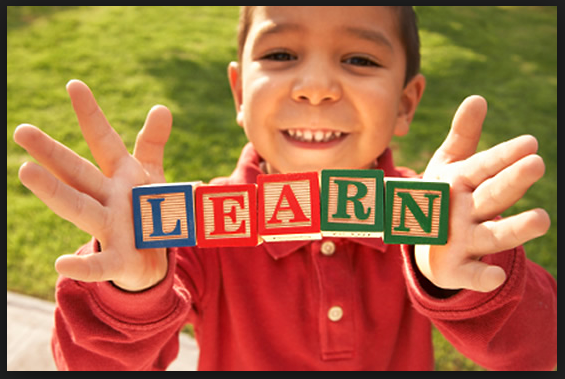
photo courtesy of busybees-learning.com
Recently a young mother posted a request on Facebook asking for help. She stated that in her town all the pre-schools were full and she wanted to personally prepare her young son for kindergarten. Her only concern was that she didn’t know the first thing about going about it. She was hoping someone would know websites she could use. Following was my reply:
**********************************************************************
Dear Mom,
I saw your post, and as a retired teacher, I couldn’t let your query go by without a response. I will attach a few websites that you can peruse to help you on your journey to prepare your little tyke for kindergarten. Here’s a few general suggestions to make your job a little easier when learning…
- Give your child three options of things to do, such as coloring, word recognition, number sorts. This will allow him/her to feel like he/she is choosing and he/she will want to do it.
- Only work with your child when he/she is not tired or distracted by something else. A good way to do this is to have a set schedule or time of day when he/she knows what is expected.

3. DON’T overdo it. Some parents feel they have to spend an hour working on something. The average attention span of a young learner is 30-40 minutes max. When you see your child losing attention, take a break and change the activity. (As a teacher, I changed subjects every 17 minutes)
4. Try to do as much HANDS-ON activities as possible. Work-book practice should only be used to check what you have taught. Little fingers don’t always handle workbooks very well anyhow.
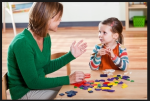
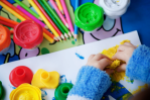 5. Don’t have huge expectations. If you are working with a boy, he may not grasp concepts very well… this is normal in young males. Thus this is why hands-on activities work well with little boys until their cognitive skills mature. Don’t worry, they will catch up fast!
5. Don’t have huge expectations. If you are working with a boy, he may not grasp concepts very well… this is normal in young males. Thus this is why hands-on activities work well with little boys until their cognitive skills mature. Don’t worry, they will catch up fast!
6. Let your child TEACH you! There is no better way to teach a child then to make them the teacher. Choose something to refresh but have them ask you the questions (Don’t always get them right!)
7. Don’t over-fill the brain with too many ideas at one time. This is why many pre-school teachers introduce colors by week, and only 1 to 3 letters at a time.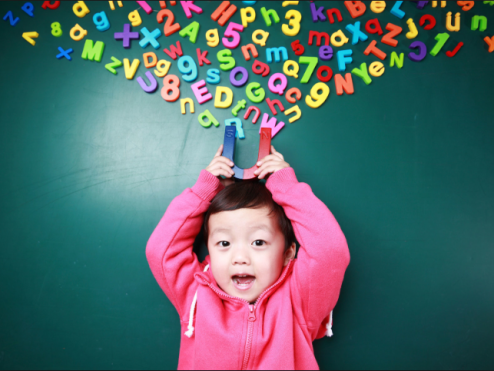
8. Make sure you read with your child every day BUT use these techniques:
- Picture walk the whole book first… look at the pictures and let your child tell you what he/she sees.
- Ask your child what he/she thinks the story is about (this is a huge skill they will need as they grow – it’s called prediction. You can even use that word so they are familiar with it.)
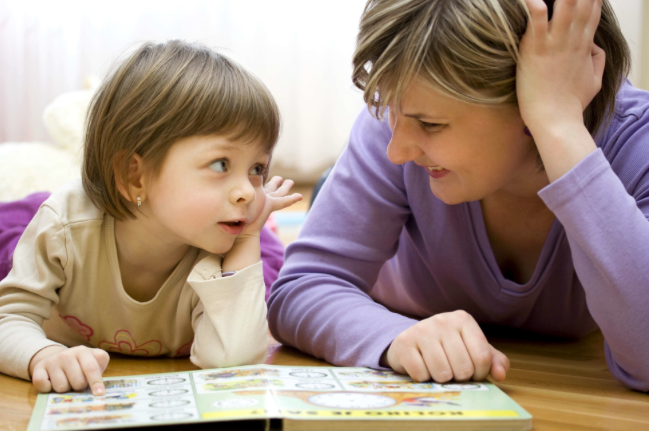
peterborough.ca.png
- If words have been learned… walk through the book and ask your child to find words he/she recognizes and have him/her read them. (always give encouragement)
- Begin reading the book, but always predict what might be on the next page or what he/she would want to happen. (This is active reading and engages the brain to think beyond what he/she sees)
- IF it is a repeat book, which sometimes they want to read a book a million times, so be patient… have them finish sentences if they know the lines. BUT using your finger, point to each word your child reads.
- When you finish the book, ask your child if they liked the book and why. He/She will have to be able to give a conclusion as he/she grows.
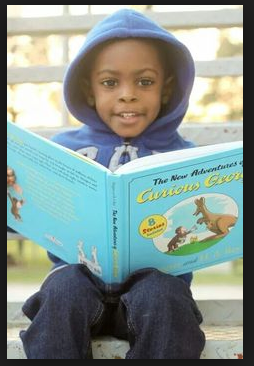
- Have your child put the book away. This doesn’t seem like much of a big deal but it is huge. When a child learns how to take care of a book it is the first step to respecting a classroom, items in a classroom, and teaches organization.
- Don’t be afraid to pull out a kindle/tablet book, but this should be on a rare occasion as we try to use books to encourage turning of pages with little fingers, holding a book the correct way etc.
9. Math is a very important skill and is often not introduced by parents! Just learning numbers means nothing to a child, but putting a number to an object makes sense. Do not start by teaching your child to count to ten… the numbers will mean nothing to him/her. This is true about the ABC’s too. Teach the numbers 0-9. and then you can add ten to show that a new pattern is going to begin, adding the number 1 to make 10, 11, 12,etc.

teachersoncall.png
Whenever you introduce a number, spend time using that number and re-enforcing the number by writing it each time you build that set. EX. If you pick four apples out of the fridge, stop and write the number 4 so that your child relates the amount with the number. Having a small whiteboard in the kitchen is a must.
- Drawing is an incredibly imaginative time for a child. Encourage all drawings even if they look like a squiggly line. Ask what that line is to them. It’s okay if he/she draws out of a coloring page line… their little fingers have to learn dexterity. USE APPROPRIATE COLORING UTENSILS. Pre-schoolers do not need markers or colored pencils. Start with the large FAT crayons, no count larger than 12. Once your child has learned all those colors you can move up to the 24 pack but beyond that is a marketing scam and the colors all start to look the same and you end up with boxes of broken unused crayons… trust me after 20 years of teaching!!
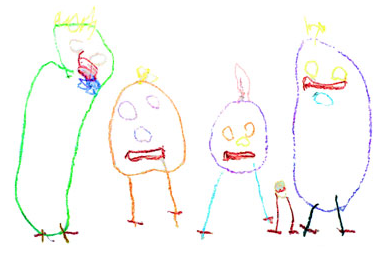
- The more fun learning activities you do with your child, the better. Bake together, using numbers, describing words…science words like TASTE< TOUCH<SMELL. Go outside and explore with your child using science words like environment, conifer, air, sun. Then go inside and write the words you used and show him/her how they look in print and have him/her draw a picture to go with each word, then you draw a picture to go with the word . Take those words and drawings and tape them up in places he/she will see all week… then put them in his/her special Vocabulary book titled MOM/DAD AND MY VOCABULARY BOOK. I would only do like three words to write down until he/she is older.
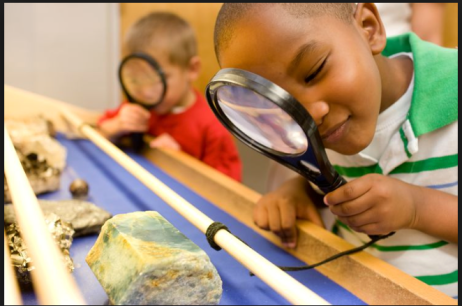
- One of the most important things you can do to prepare your child for kindergarten is to socialize him/her. Too many parents fall into the category of spending all “adult” time with their child. The problem comes at school when your child does not know how to play with other children. Find a play group (check out social sites for one near you) that your child can learn from… just letting children free play is one of the best ways to prepare your child for dealing with other children.
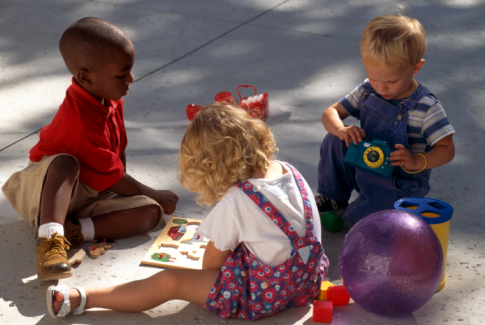
sproutsdevelopment.com.png
- Give your child a small job at home each week or day to prepare him/her for school. Putting the forks on the table is a great job, or sharpening pencils, or simply making his/her own bed each day. In school your child will need to follow directions and carry out little jobs. Why not prepare him/her for these jobs?

- Working with TANGIBLES, such as flash cards and paper/pencil. Don’t reinvent the wheel. Below there are a few websites where you will find great printables to use. Once you copy them, keep each set in a Ziploc, Label them and put them in a particular basket that is also labeled. The more organized you are, the better. If you do this ahead of time (I suggest picking a particular day and time to put your things together) you can have your child locate the items for you. Such as Math is in the Red Basket, Letters are in the Blue etc.
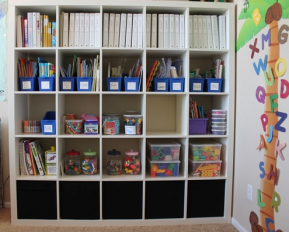 When using printables, try to make the activity a game of some sort. It’s okay to do memorization activities, but you will most likely find your child will bore of the activity quickly. Memorization is an important skill to learn at an early age, however, and should be practiced as we all know the skill will be used throughout his/her lifetime.
When using printables, try to make the activity a game of some sort. It’s okay to do memorization activities, but you will most likely find your child will bore of the activity quickly. Memorization is an important skill to learn at an early age, however, and should be practiced as we all know the skill will be used throughout his/her lifetime.
15. TECHNOLOGY… your child will crave technology and you must relent. (I hate to say that!) But the fact is, your child lives in a tech world and by keeping your child from technology is actually going to set your child back from his/her peers. But here
are a few guidelines:
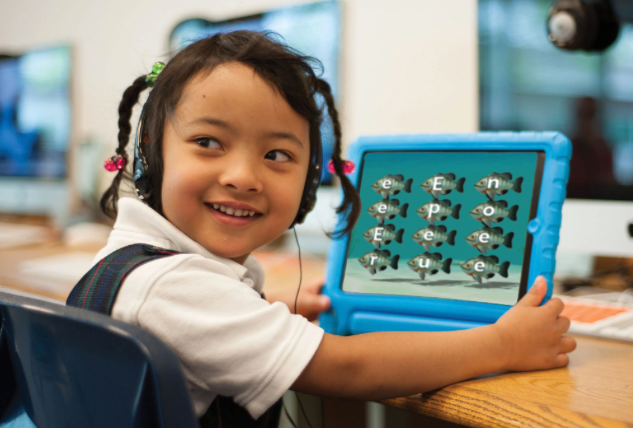
- Choose the activity wisely. No VIOLENT GAMES!! Children do not understand these games and there are far better activities to use. Try to use programs that encourage learning and enhance what you are currently teaching at home. It should kind of be like his/her homework, a way to practice skills.
- Limit the time your child is playing the game. NO MORE THAN 30 minutes a day. I know, I know… this can be difficult. But you need to explain to your child, before you ever introduce the program, that there is a limit and you will set the clock for 25 minutes, giving him/her a five-minute warning. Then set the clock for five minutes. Let you child take ownership in closing out the program. This should be a big deal at first. Use wording like this: Can you show me how to properly close today’s game etc. or Can you teach me how to close down the program. Then complement your child on their attempt or success at completing the task. Never lose your temper if your young child accidentally wipes out your computer… it will be an accident that can happen to anyone. (Go scream in another room!)

- Make a technology corner for your child, perhaps a beanbag chair or mommy or daddy’s desk so they feel special and know that this is a treat to be using technology like a school child. This encourages your child to treat the equipment with respect and to take care of the device/s.
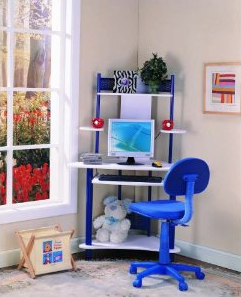
- Pick a time of day that fits YOUR schedule to do technology. I tell parents that Pre-Dinner time while you are preparing dinner is a perfect time for this activity. It does not require a great deal of attention and allows you, the parent, to cook.
- Always talk about the activity following the activity. If your child does indeed play prior to dinner, the dinner table is the perfect place to discuss what the game was about, what they liked, what they would do different next time, and how would they change the game to make it better. You’d be surprised by the answers!!
- DINNER TALK/ CAR TALK– there is no greater learning that takes place than that found at the dinner table and in a car. Remember this even when your child is a teenager!! You have a captive audience, so you should capitalize on this unique time. Here are some tips to help you out in this department:
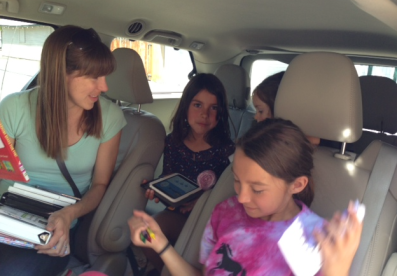
keyword-suggestions.com.png
- Start with open-ended questions, not ones that require a Yes /No answer. Use the five W’s Who, What, When Where, Why….. and How
Example: What was the best thing you did today? Where did you find the most cars today? You ask these as opening questions so that a discussion can begin after their answer. IF they say the best thing they did all day was take a nap, you can follow-up with,”Why was that the best thing?”
Many parents start with, “What did you do today?” or “Did you have a nice day?” But let’s get real…. How many things do you do in a day and where do you start??? That’s just too overwhelming of a question. And as for the day question…. You will get a yes or no…end of story.

parenting.com
- Have question cards on the table in a cute basket for dinner prompts…even the parents have to play. Questions like: If you lived on the moon who would you have come visit? What sounds do you think a Squirrel makes when he sees a big dog staring him down. You’ll be surprised the funny questions you can write and the funnier answers you will get in return. Dinner at my table would get really silly at times. If you want to encourage good grammar, ask your child during the day to come up with a question for the basket so he/she feels like a part of the action.
- Encourage the Arts at dinner and in the car. Playing music and talking about the artists is a great way to encourage appreciation for music. One time we played a game where you could only eat if the conductor pointed at you… it was hysterical. Then we talked about the Overture (Beethoven) and what instruments we would have played.
 You can place photo cards of Artists and their work in the table basket and have a quick conversation about the one you pull out for the meal. You will laugh when the old photos come out and your little one comments on the crazy hair or big noses… imagine the conversations you can have using great ADJECTIVES!!! (those describing words)
You can place photo cards of Artists and their work in the table basket and have a quick conversation about the one you pull out for the meal. You will laugh when the old photos come out and your little one comments on the crazy hair or big noses… imagine the conversations you can have using great ADJECTIVES!!! (those describing words)
You can even do the same thing with Sports figures and sporting events.
The more you talk with your child/children, the smarter, more knowledgeable, more worldly they will become.
I’m sure you got more than you bargained for here, but I hope some of it will help. Even if you try some of it you’ll find being your child’s first teacher is pretty awesome. Remember, everything in small doses… if he/she doesn’t get it as fast as you think he/she should, just remember this…. By 12thgrade graduation he/she will. The best parent is the nurturing parent, the calm one who is encouraging and makes learning fun.
Good Luck!
Advice From a Teacher
Following are some websites you might find helpful:
http://www.prekinders.com/prek-printables/
http://www.preschoolrainbow.org/resources.htm
Important To Have
http://www.mccsc.edu/cms/lib07/IN01906545/Centricity/Domain/252/fryfirst100set.pdf
http://www.first-school.ws/theme/alphabetp12a.htm
http://www.first-school.ws/theme/numbers.htm
** The author chooses to use the traditional he/she term in this blog for simplicity only. The use of these terms are in no way intended to offend those of any gender (he/she/they).




I am so glad for your endless assistance as well as love. You highlight the most effective in every person around you.